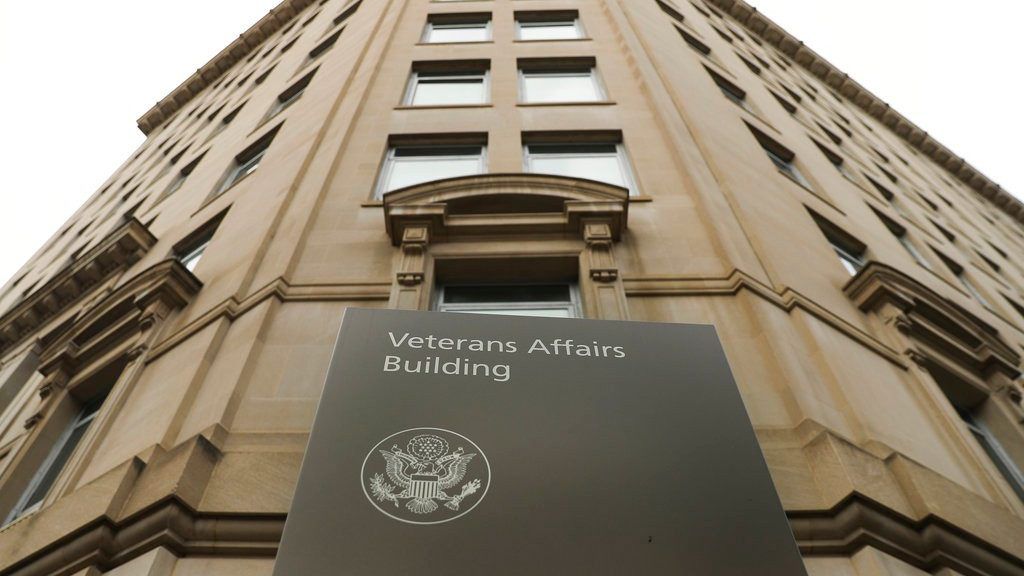LOS ANGELES — A judge has ruled that the U.S. Department of Veterans Affairs' practice of leasing its land in West Los Angeles to third-party housing developers who use restrictive income limitations discriminates against veterans based on their disabilities, according to court papers obtained Monday.
What You Need To Know
- The plaintiffs allege the VA has failed in its duty to provide housing and health care to veterans with disabilities, leaving nearly 3,500 veterans sleeping nightly on the streets of LA
- In an order issued Sunday, U.S. District Judge David O. Carter granted partial summary judgment to plaintiffs on the issue of supportive housing leases
- In his 30-page order, Carter wrote that Los Angeles is "the homeless veterans' capital of the United States"
- Nearly 4,000 veterans live on the city's streets, which is approximately 10% of the national total, the judge said
The ruling is part of class-action litigation lodged in LA federal court against the VA by a group of veterans, challenging land lease agreements and seeking permanent housing for thousands of homeless veterans on and around the VA's West LA campus. A trial date has been set for Aug. 6, and a pretrial conference is scheduled on Tuesday in downtown Los Angeles.
The plaintiffs allege the VA has failed in its duty to provide housing and health care to veterans with disabilities, leaving nearly 3,500 veterans sleeping nightly on the streets of LA, according to the November 2022 complaint.
In an order issued Sunday, U.S. District Judge David O. Carter granted partial summary judgment to plaintiffs on the issue of supportive housing leases.
The judge also denied the government's motion for summary judgment on issues involving whether the VA has enforceable fiduciary duties to veterans under the charitable trust created when the 388-acre area was donated to the VA almost 150 years ago for the purpose of housing veterans with disabilities — Civil War veterans at first.
A VA spokesperson did not immediately respond to a request for comment sent after business hours. However, VA spokesman Gary J. Kunich previously said, when asked about the lawsuit, that while the department doesn't typically comment on pending or ongoing litigation, "we are proud of the work we are doing in Los Angeles and across the nation to end Veteran homelessness."
In the land lease matter, developers who lease grounds on the West L.A. campus from the VA for supportive housing impose restrictions limiting tenants to those who have income less than 30% of the Average Median Income. Because the developers treat VA disability benefits as "income" for purposes of deciding whether a veteran is eligible to live in the property, veterans with 100% disabled veteran status are not able to meet the income eligibility requirements.
According to Carter's order, the court found that the income restriction, because it excludes people with high disability ratings, discriminates in the basis of disability.
"The Court will hear evidence regarding the proper scope of injunctive relief to remedy this discrimination at a later date," Carter wrote.
As for the separate question of whether the VA has breached its duties under the charitable trust is also reserved for trial, the judge indicated.
In his 30-page order, Carter wrote that Los Angeles is "the homeless veterans' capital of the United States."
Nearly 4,000 veterans live on the city's streets, which is approximately 10% of the national total, the judge said.
In Los Angeles, the department completed 233 permanent supportive housing units on the West LA campus with 199 units occupied as of Sept. 15, 2023, Kunich said last year, with 134 tiny shelters, plus six units held for overnight drop-ins.
He also described an array of services to address veteran housing instability and homelessness, including outreach and referral services, residential services and help with permanent housing.
The plaintiffs say they suffer serious disabilities such as PTSD and traumatic brain injury. They seek to secure coordinated housing and health care services, including permanent supportive housing, for all unhoused veterans with disabilities in the region.
Without such housing, "veterans with serious disabilities cannot access desperately needed mental and physical treatment services to which they are entitled," according to the complaint.
The suit, filed by Los Angeles-based law firms Public Counsel, the Inner City Law Center and others, also seeks a court order prohibiting the VA from using the campus for any venture that does not primarily benefit veterans.
A 2011 lawsuit also addressed the land-use issue. Although the VA committed to construct 1,200 units of new permanent supportive housing — 770 of which should have been completed by last winter — virtually no such housing had been built as of 2022, according to Public Counsel.



